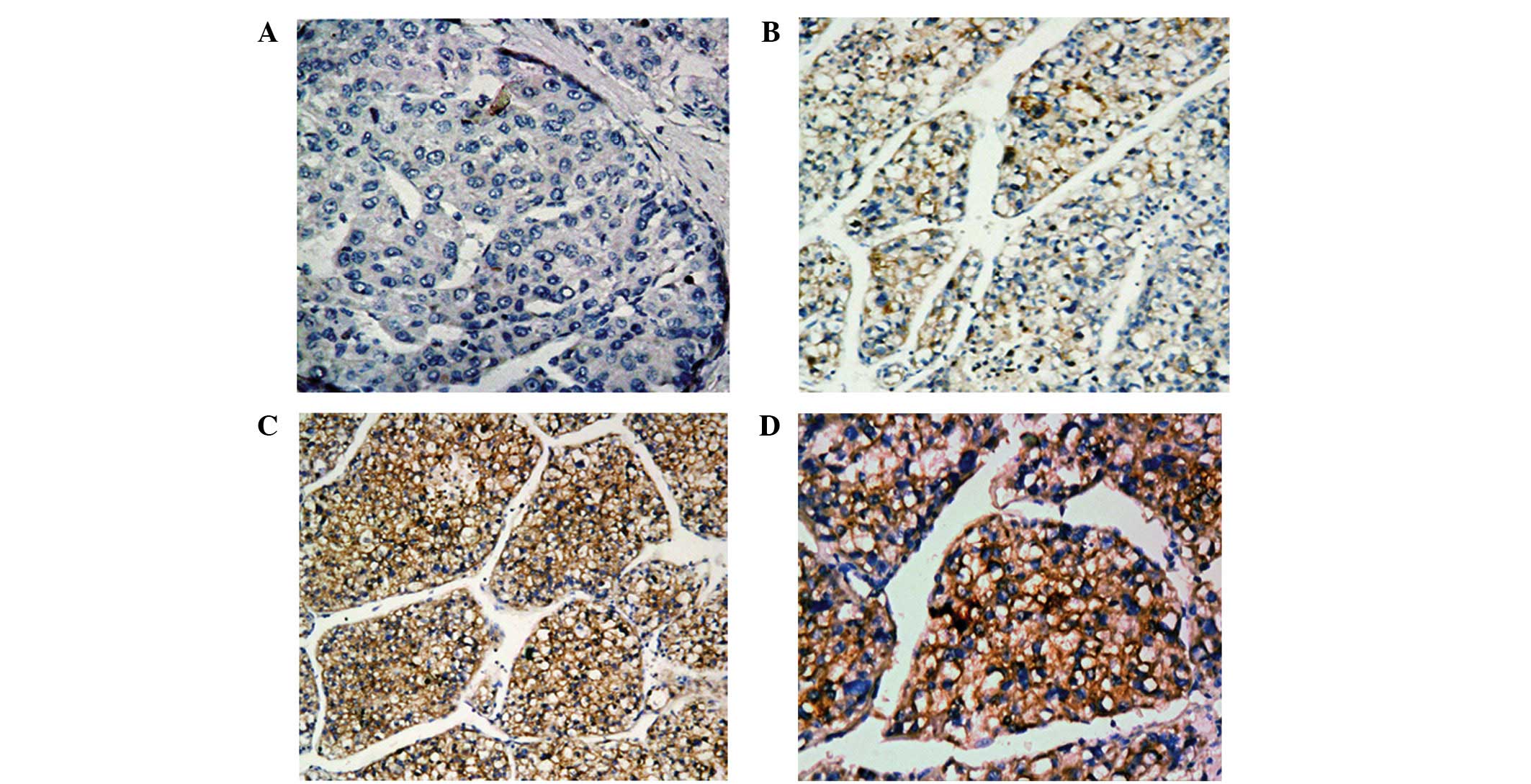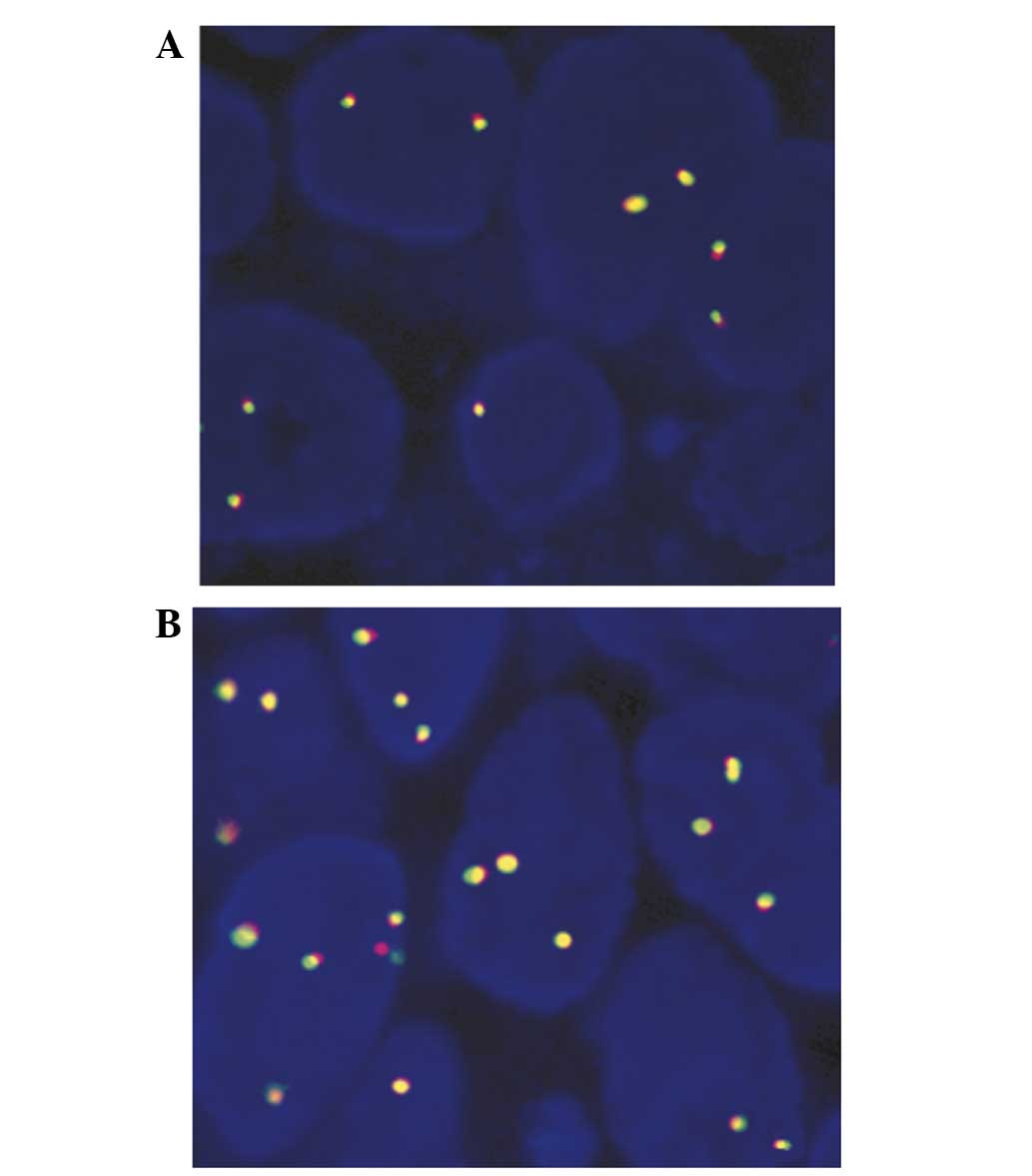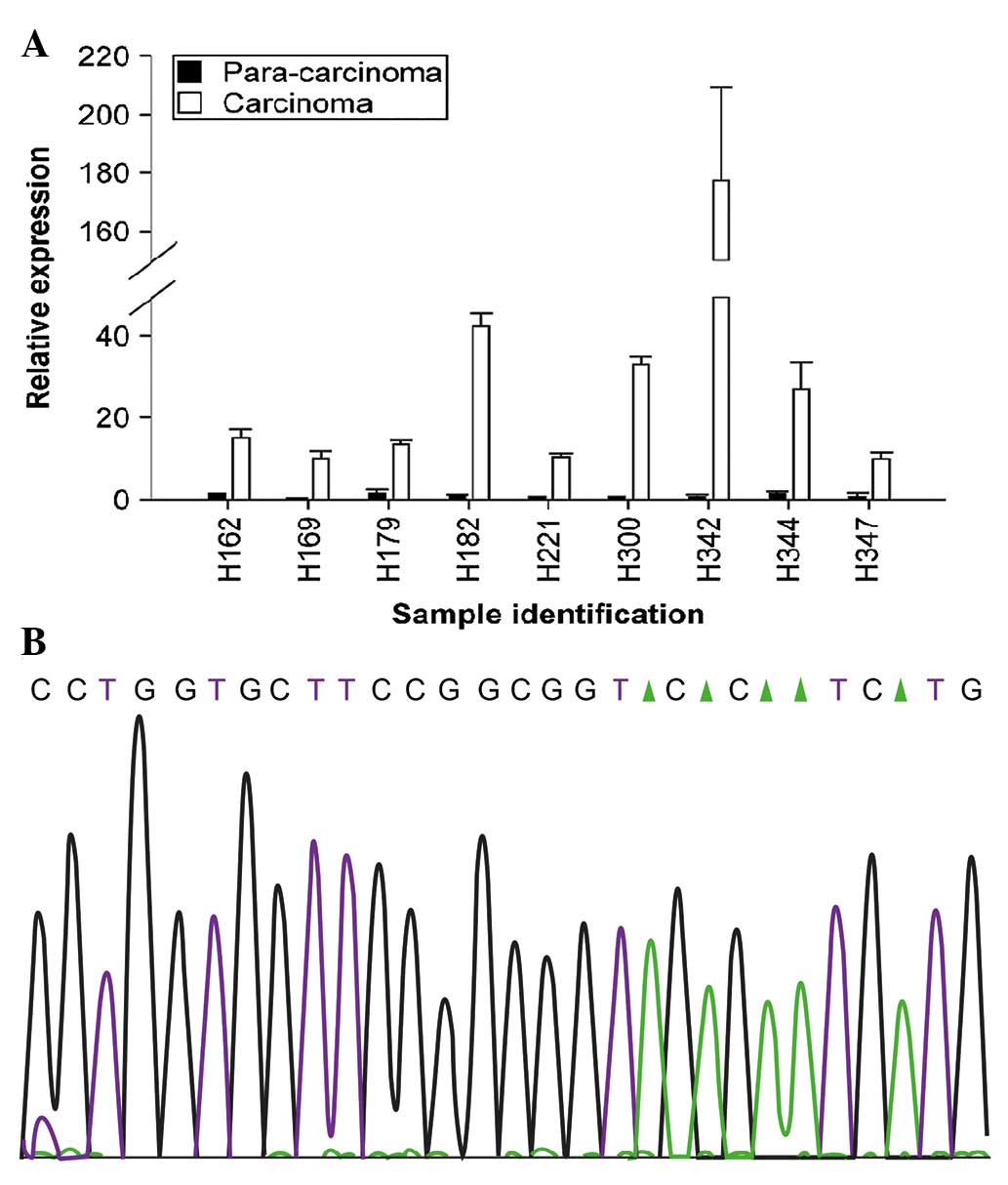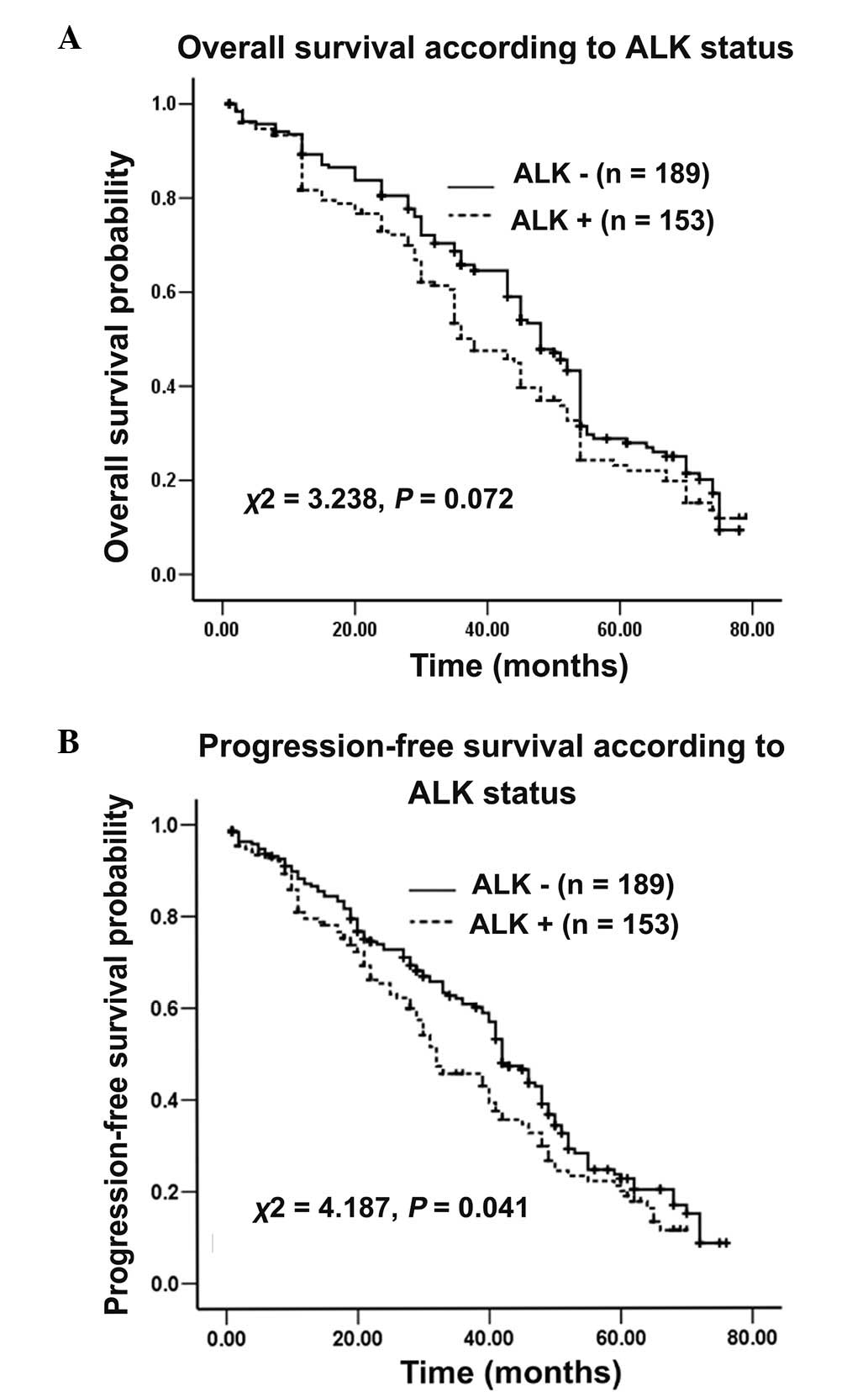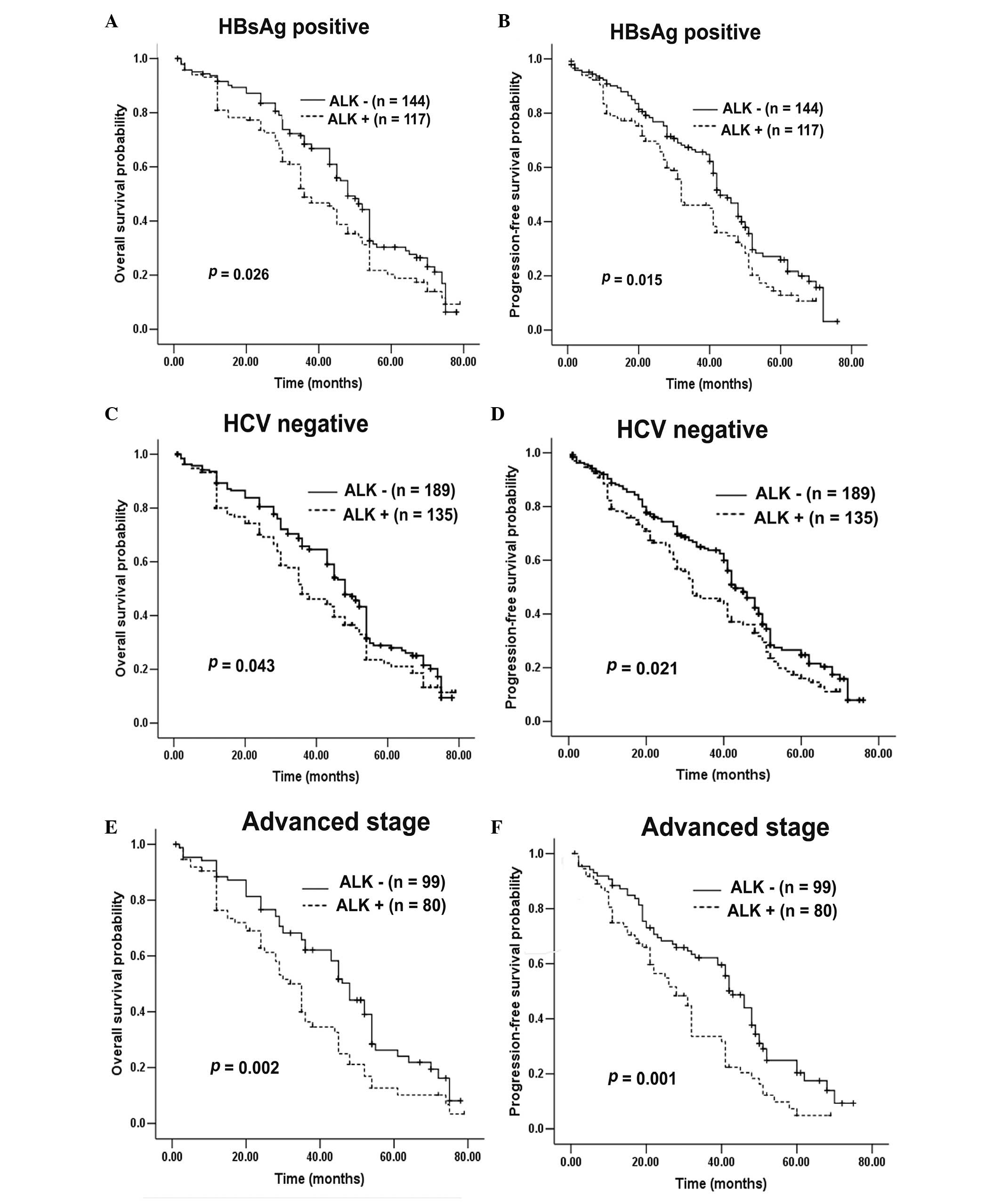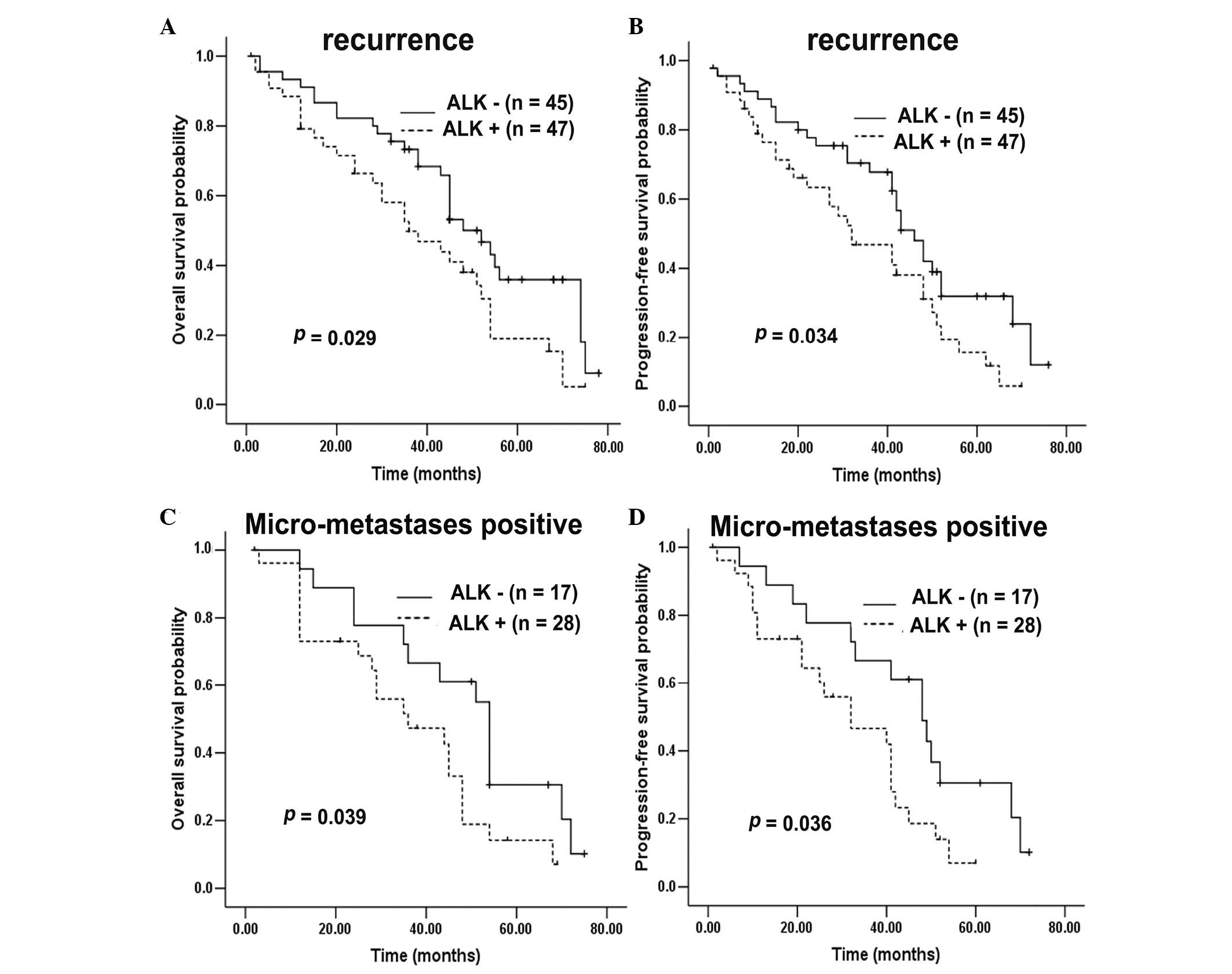|
1
|
Maluccio M and Covey A: Recent progress in
understanding, diagnosing and treating hepatocellular carcinoma. CA
Cancer J Clin. 62:394–399. 2012. View Article : Google Scholar : PubMed/NCBI
|
|
2
|
Schütte K, Bornschein J and Malfertheiner
P: Hepatocellular carcinoma - epidemiological trends and risk
factors. Dig Dis. 27:80–92. 2009. View Article : Google Scholar
|
|
3
|
Jemal A, Bray F, Center MM, Ferlay J, Ward
E and Forman D: Global cancer statistics. CA Cancer J Clin.
61:69–90. 2011. View Article : Google Scholar : PubMed/NCBI
|
|
4
|
Song MJ and Bae SH: Newer treatments for
advanced hepatocellular carcinoma. Korean J Intern Med. 29:149–155.
2014. View Article : Google Scholar : PubMed/NCBI
|
|
5
|
Tanaka S and Arii S: Molecular targeted
therapies in hepatocellular carcinoma. Semin Oncol. 39:486–492.
2012. View Article : Google Scholar : PubMed/NCBI
|
|
6
|
Crose LE and Linardic CM: Receptor
tyrosine kinases as therapeutic targets in rhabdomyosarcoma.
Sarcoma. 2011:7569822011. View Article : Google Scholar : PubMed/NCBI
|
|
7
|
Morris SW, Kirstein MN, Valentine MB,
Dittmer KG, Shapiro DN, Saltman DL and Look AT: Fusion of a kinase
gene, ALK, to a nucleolar protein gene, NPM, in non-Hodgkin's
lymphoma. Science. 263:1281–1284. 1994. View Article : Google Scholar : PubMed/NCBI
|
|
8
|
Gleason BC and Hornick JL: Inflammatory
myofibroblastic tumours: Where are we now? J Clin Pathol.
61:428–437. 2008. View Article : Google Scholar : PubMed/NCBI
|
|
9
|
Laurent C, Do C, Gascoyne RD, Lamant L,
Ysebaert L, Laurent G, Delsol G and Brousset P: Anaplastic lymphoma
kinase-positive diffuse large B-cell lymphoma: A rare
clinicopathologic entity with poor prognosis. J Clin Oncol.
27:4211–4216. 2009. View Article : Google Scholar : PubMed/NCBI
|
|
10
|
Webb TR, Slavish J, George RE, Look AT,
Xue L, Jiang Q, Cui X, Rentrop WB and Morris SW: Anaplastic
lymphoma kinase: Role in cancer pathogenesis and small-molecule
inhibitor development for therapy. Expert Rev Anticancer Ther.
9:331–356. 2009. View Article : Google Scholar : PubMed/NCBI
|
|
11
|
Zhang X, Zhang S, Yang X, Yang J, Zhou Q,
Yin L, An S, Lin J, Chen S, Xie Z, et al: Fusion of EML4 and ALK is
associated with development of lung adenocarcinomas lacking EGFR
and KRAS mutations and is correlated with ALK expression. Mol
Cancer. 9:1882010. View Article : Google Scholar : PubMed/NCBI
|
|
12
|
Jia SW, Fu S, Wang F, Shao Q, Huang HB and
Shao JY: ALK gene copy number gain and its clinical significance in
hepatocellular carcinoma. World J Gastroenterol. 20:183–192. 2014.
View Article : Google Scholar : PubMed/NCBI
|
|
13
|
Salido M, Pijuan L, Martínez-Avilés L,
Galván AB, Cañadas I, Rovira A, Zanui M, Martínez A, Longarón R,
Sole F, et al: Increased ALK gene copy number and amplification are
frequent in non-small cell lung cancer. J Thorac Oncol. 6:21–27.
2011. View Article : Google Scholar : PubMed/NCBI
|
|
14
|
Shaw AT and Solomon B: Targeting
anaplastic lymphoma kinase in lung cancer. Clin Cancer Res.
17:2081–2086. 2011. View Article : Google Scholar : PubMed/NCBI
|
|
15
|
Shaw AT, Yeap BY, Mino-Kenudson M,
Digumarthy SR, Costa DB, Heist RS, Solomon B, Stubbs H, Admane S,
McDermott U, et al: Clinical features and outcome of patients with
non-small-cell lung cancer who harbor EML4-ALK. J Clin Oncol.
27:4247–4253. 2009. View Article : Google Scholar : PubMed/NCBI
|
|
16
|
Soda M, Choi YL, Enomoto M, Takada S,
Yamashita Y, Ishikawa S, Fujiwara S, Watanabe H, Kurashina K,
Hatanaka H, et al: Identification of the transforming EML4-ALK
fusion gene in non-small-cell lung cancer. Nature. 448:561–566.
2007. View Article : Google Scholar : PubMed/NCBI
|
|
17
|
Ou SH, Soo RA, Kubo A, Kawaguchi T and Ahn
MJ: Will the requirement by the US FDA to simultaneously co-develop
companion diagnostics (CDx) delay the approval of receptor tyrosine
kinase inhibitors for RTK-rearranged (ROS1-, RET-, AXL-, PDGFR-α-,
NTRK1-) non-small cell lung cancer globally? Front Oncol. 4:582014.
View Article : Google Scholar : PubMed/NCBI
|
|
18
|
Schoppmann SF, Streubel B and Birner P:
Amplification but not translocation of anaplastic lymphoma kinase
is a frequent event in oesophageal cancer. Eur J Cancer.
49:1876–1881. 2013. View Article : Google Scholar : PubMed/NCBI
|
|
19
|
Lin E, Li L, Guan Y, Soriano R, Rivers CS,
Mohan S, Pandita A, Tang J and Modrusan Z: Exon array profiling
detects EML4-ALK fusion in breast, colorectal and non-small cell
lung cancers. Mol Cancer Res. 7:1466–1476. 2009. View Article : Google Scholar : PubMed/NCBI
|
|
20
|
Lipson D, Capelletti M, Yelensky R, Otto
G, Parker A, Jarosz M, Curran JA, Balasubramanian S, Bloom T,
Brennan KW, et al: Identification of new ALK and RET gene fusions
from colorectal and lung cancer biopsies. Nat Med. 18:382–384.
2012. View Article : Google Scholar : PubMed/NCBI
|
|
21
|
Debelenko LV, Raimondi SC, Daw N,
Shivakumar BR, Huang D, Nelson M and Bridge JA: Renal cell
carcinoma with novel VCL-ALK fusion: New representative of
ALK-associated tumor spectrum. Mod Pathol. 24:430–442. 2011.
View Article : Google Scholar : PubMed/NCBI
|
|
22
|
Hu ZY, Yuan SX, Yang Y, Zhou WP and Jiang
H: Pleomorphic adenoma gene 1 mediates the role of karyopherin
alpha 2 and has prognostic significance in hepatocellular
carcinoma. J Exp Clin Cancer Res. 33:612014. View Article : Google Scholar : PubMed/NCBI
|
|
23
|
Vauthey JN, Lauwers GY, Esnaola NF, Do KA,
Belghiti J, Mirza N, Curley SA, Ellis LM, Regimbeau JM, Rashid A,
et al: Simplified staging for hepatocellular carcinoma. J Clin
Oncol. 20:1527–1536. 2002. View Article : Google Scholar : PubMed/NCBI
|
|
24
|
Wang Z, Zhang X, Bai H, Zhao J, Zhuo M, An
T, Duan J, Yang L, Wu M, Wang S, et al: EML4-ALK rearrangement and
its clinical significance in Chinese patients with advanced
non-small cell lung cancer. Oncology. 83:248–256. 2012. View Article : Google Scholar : PubMed/NCBI
|
|
25
|
Pietrantonio F, Maggi C, Di Bartolomeo M,
Facciorusso MG, Perrone F, Testi A, Iacovelli R, Miceli R, Bossi I,
Leone G, et al: Gain of ALK gene copy number may predict lack of
benefit from anti-EGFR treatment in patients with advanced
colorectal cancer and RAS-RAF-PI3KCA wild-type status. PLoS One.
9:e921472014. View Article : Google Scholar : PubMed/NCBI
|
|
26
|
Zhang YG, Jin ML, Li L, Zhao HY, Zeng X,
Jiang L, Wei P, Diao XL, Li X, Cao Q and Tian XX: Evaluation of ALK
rearrangement in Chinese non-small cell lung cancer using FISH,
immunohistochemistry and real-time quantitative RT-PCR on
paraffin-embedded tissues. PLoS One. 8:e648212013. View Article : Google Scholar : PubMed/NCBI
|
|
27
|
Shiraha H, Yamamoto K and Namba M: Human
hepatocyte carcinogenesis (review). Int J Oncol. 42:1133–1138.
2013.PubMed/NCBI
|
|
28
|
Shen YC, Lin ZZ, Hsu CH, Hsu C, Shao YY
and Cheng AL: Clinical trials in hepatocellular carcinoma: An
update. Liver Cancer. 2:345–364. 2013. View Article : Google Scholar : PubMed/NCBI
|
|
29
|
Calero R, Morchon E, Johnsen JI and
Serrano R: Sunitinib suppress neuroblastoma growth through
degradation of MYCN and inhibition of angiogenesis. PLoS One.
9:e956282014. View Article : Google Scholar : PubMed/NCBI
|
|
30
|
Wu YC, Chang IC, Wang CL, Chen TD, Chen
YT, Liu HP, Chu Y, Chiu YT, Wu TH, Chou LH, et al: Comparison of
IHC, FISH and RT-PCR methods for detection of ALK rearrangements in
312 non-small cell lung cancer patients in Taiwan. PLoS One.
8:e708392013. View Article : Google Scholar : PubMed/NCBI
|
|
31
|
George REI, Sanda T, Hanna M, Fröhling S,
Luther W 2nd, Zhang J, Ahn Y, Zhou W, London WB, McGrady P, et al:
Activating mutations in ALK provide a therapeutic target in
neuroblastoma. Nature. 455:975–978. 2008. View Article : Google Scholar : PubMed/NCBI
|
|
32
|
Duijkers FA, Gaal J, Meijerink JP,
Admiraal P, Pieters R, de Krijger RR and van Noesel MM: High
anaplastic lymphoma kinase immunohistochemical staining in
neuroblastoma and ganglioneuroblastoma is an independent predictor
of poor outcome. Am J Pathol. 180:1223–1231. 2012. View Article : Google Scholar : PubMed/NCBI
|
|
33
|
Hasan MK, Nafady A, Takatori A, Kishida S,
Ohira M, Suenaga Y, Hossain S, Akter J, Ogura A, Nakamura Y, et al:
ALK is a MYCN target gene and regulates cell migration and invasion
in neuroblastoma. Sci Rep. 3:34502013. View Article : Google Scholar : PubMed/NCBI
|
|
34
|
Shao CK, Su ZL, Feng ZY, Rao HL and Tang
LY: Significance of ALK gene expression in neoplasms and normal
tissues. Ai Zheng. 21:58–62. 2002.(In Chinese). PubMed/NCBI
|
|
35
|
Kinoshita Y, Tajiri T, Ieiri S, Nagata K,
Taguchi T, Suita S, Yamazaki K, Yoshino I, Maehara Y, Kohashi K, et
al: A case of an inflammatory myofibroblastic tumor in the lung
which expressed TPM3-ALK gene fusion. Pediatr Surg Int. 23:595–599.
2007. View Article : Google Scholar : PubMed/NCBI
|
|
36
|
Di Paolo D, Ambrogio C, Pastorino F,
Brignole C, Martinengo C, Carosio R, Loi M, Pagnan G, Emionite L,
Cilli M, et al: Selective therapeutic targeting of the anaplastic
lymphoma kinase with liposomal siRNA induces apoptosis and inhibits
angiogenesis in neuroblastoma. Mol Ther. 19:2201–2212. 2011.
View Article : Google Scholar : PubMed/NCBI
|
|
37
|
Krishnamurthy S, Woodward W, Yang W,
Reuben JM, Tepperberg J, Ogura D, Niwa S, Huo L, Gong Y, El-Zein R,
et al: Status of the anaplastic lymphoma kinase (ALK) gene in
inflammatory breast carcinoma. Springerplus. 2:4092013. View Article : Google Scholar : PubMed/NCBI
|
|
38
|
Ning H, Mitsui H, Wang CQ, Suárez-Fariñas
M, Gonzalez J, Shah KR, Chen J, Coats I, Felsen D, Carucci JA and
Krueger JG: Identification of anaplastic lymphoma kinase as a
potential therapeutic target in basal cell carcinoma. Oncotarget.
4:2237–2248. 2013. View Article : Google Scholar : PubMed/NCBI
|















